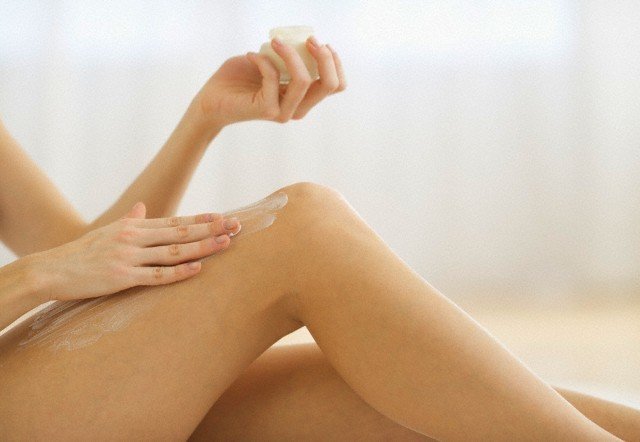
Got cellulite? Welcome to the club, chica. The skin on my thighs and booty started dimpling when I was ten years old and I've been trying to get rid of that orange peel look ever since. I've used every "miracle" cellulite zapping cream on the market, but the only thing they made disappear was my money. And home remedies? Bah! I've rubbed enough coffee grounds on my legs to fuel a small college campus during finals week, and still nada. All I got out of that experience was a caffeine addiction. Hmph! What's the deal?!?!?!
Read more *What else? : * 5 Facts no one ever tells you acerca losing weight
According to Dr. Oz, thigh dimples and booty ripples, much like death and taxes, are inevitable. In fact, according to Dr. Oz, cellulite is incurable! As Dr. Oz explained it on an episode of the Oprah Show last year, cellulite creams don't work because dimples originate well beneath the skin's surface, where topical treatments cannot reach. So in essence, it's like we've been rubbing tubes full lies onto our thighs all of these years. Arg! What else don't we know about cellulite?
Well, it turns out, plenty! Here are the top twelve things every woman should know about cellulite, but probably doesn't*.*
Image via Thinkstock
Cellulite is the result of plumped up fat cells
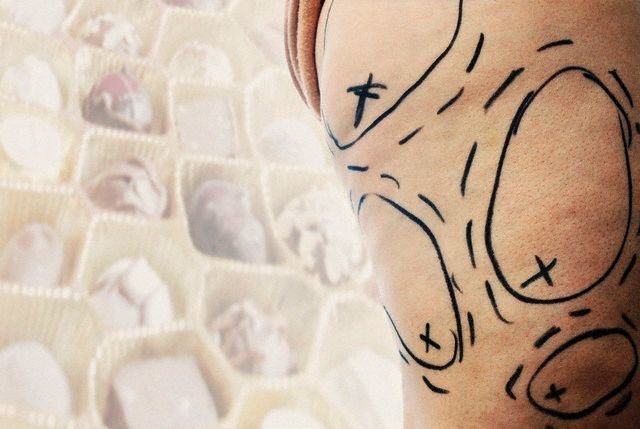
Cellulite is the result of fat pushing up against (and through) the fibrous bands together tasked with keeping things under your skin. Only, because the bands are structured in a uselessly loose crisscross pattern, the oversized fat cells are reliable to get through, giving your skin that dimply, orange peel look.
Cellulite is genetic

But don't go blaming mami just yet. Yes, her genes may have some effect on how you look in your jeans, but it's not all her doing. Women, in general, are genetically predisposed to developing cellulite, because cellulite is often triggered by the hormone estrogen.
Nobody is immune to developing cellulite
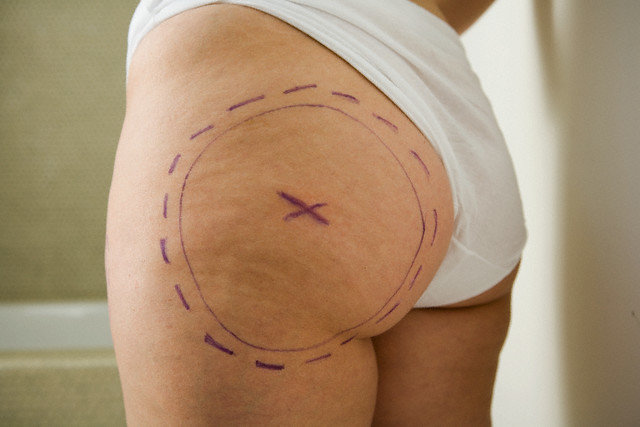
Not even flacas. Again, if a person has estrogen coursing through their body, they're likely to develop cellulite. Sure, there are the rare unicorns out there who have minimal to no cellulite, but for the most part all women, big, small, thick and thin, will develop cellulite in their lifetime. In other words, cellulite is an equal opportunity pain in the butt.
Women are more prone to developing cellulite than men
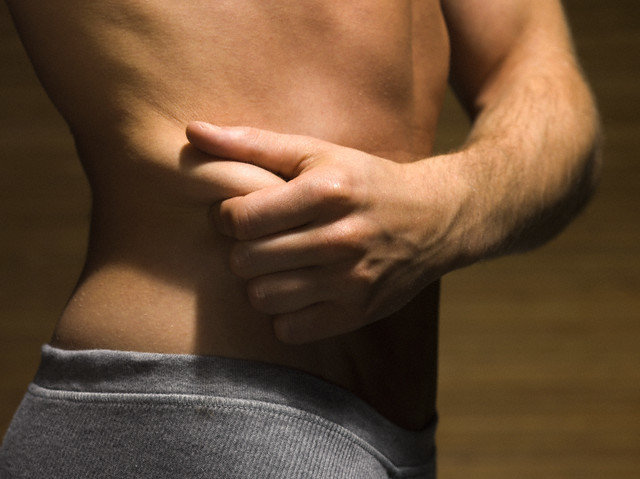
Cellulite is sexist! Well, kind of. While 90% of women have cellulite, only a measly 10% of men have to deal with dimpling pompis and thighs. Chalk it up to the fact that women have less supportive connective tissue than men do. Meng!
Smoking ups your chances of developing cellulite

Need another reason to kick cigarettes' butt to the curb? Cigarette smoke has been shown to reduce blood vessel flow, which in turn disrupts the formation of collagen, making it so connective tissue becomes stretched, saggy and easier for underlying fat to show through.
Cellulite gets worse with age
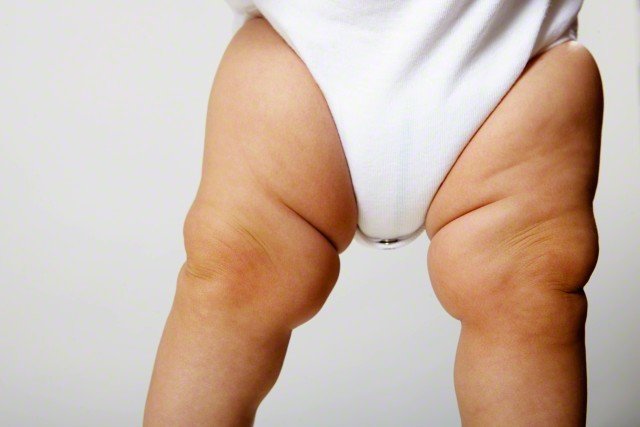
Estrogen promotes blood flow. However as women age, they produce less of that nifty, helpful hormone, which may cause poorer circulation, and can in turn lead to a decrease in new collagen production–the main structural protein that helps keep connective tissues looking young and plump.
Exercise may reduce the appearance of cellulite

Lifelong athletes are less likely than the average chica to have cellulite, mainly because their active lifestyles and healthy diets have made it difficult for the fat cells located under their skin to plump up in the first place. However, if you already have cellulite, all hope isn't lost. You too can adopt a similarly active and healthy lifestyle to prevent your fat cells from getting any bigger.
Sitting for too long makes cellulite worse

When you sit for long durations, you're restricting blood flow to your butt, hips and thighs–you know, those areas where cellulite likes to make itself at home–effectively weakening the connective tissues in those areas, which in turn leads to, you guessed it, dimpling. Get up and move, girl!
There are different types of cellulite
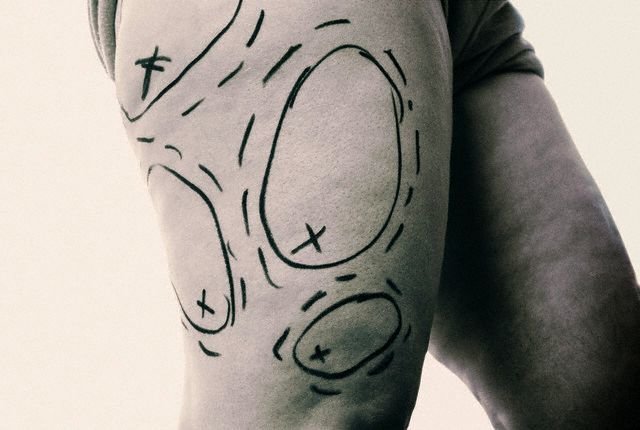
Apparently not all cellulite is created equal. According to Dermatologist Dr. Ariel Haus, there three different types of cellulite. "Adipose cellulite is the firm cellulite, orange peel effect on loose skin,’ Dr. Haus tells Metro UK. ‘Oedematous cellulite is fluid retention, soft cellulite often on loose skin. And fibrotic cellulite is hard, compact cellulite with orange peel effect.’
Creams do NOT work
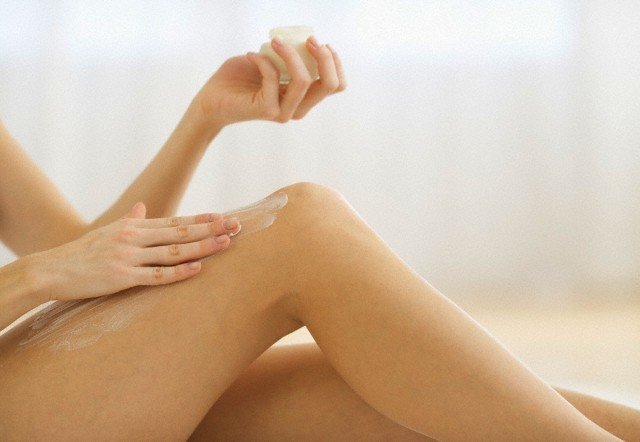
Topical creams promise to rid your body of the toxins that cause cellulite. The only problem is, cellulite isn't caused by toxins. As we've already established, cellulite is the result of fat pushing through weak or weakened band-like fibers under your skin. At most, some of those creams may increase blood circulation in the treated area, temporarily plumping your skin so that it appears more even. However, those results aren't permanent.
Lasers and massage therapy work...a little

Okay, so there are a few surgical and non-surgical treatments that one can have performed by a dematologist or aesthetician to successfully reduce the appearance of cellulite. But be forewarned: they're pricey, time consuming, and many only yield temporary results. Injectable dermal fillers like Restylane and Radiesse effectively plump up the skin around your dimples to make your skin appear smoother. However, these treatments can cost hundreds (even thousands) of dollars per leg and results only last a few months. Meanwhile, laser treatments like TriActiv or VelaSmooth may require 10 to 15 sessions to yield significant results, and require monthly maintenance appointments.
You can live a happy, healthy life with cellulite

Stop stressing! Crying and whining about your cellulite will only give your frown lines. Put negative thoughts about your lumps and bumps behind you, and instead focus on the positive aspects of your body: it's healthy, strong, capable, and 100% yours. Own your body–lumps, bumps, dimples and all–and work what you've got! Your body is beautiful.




